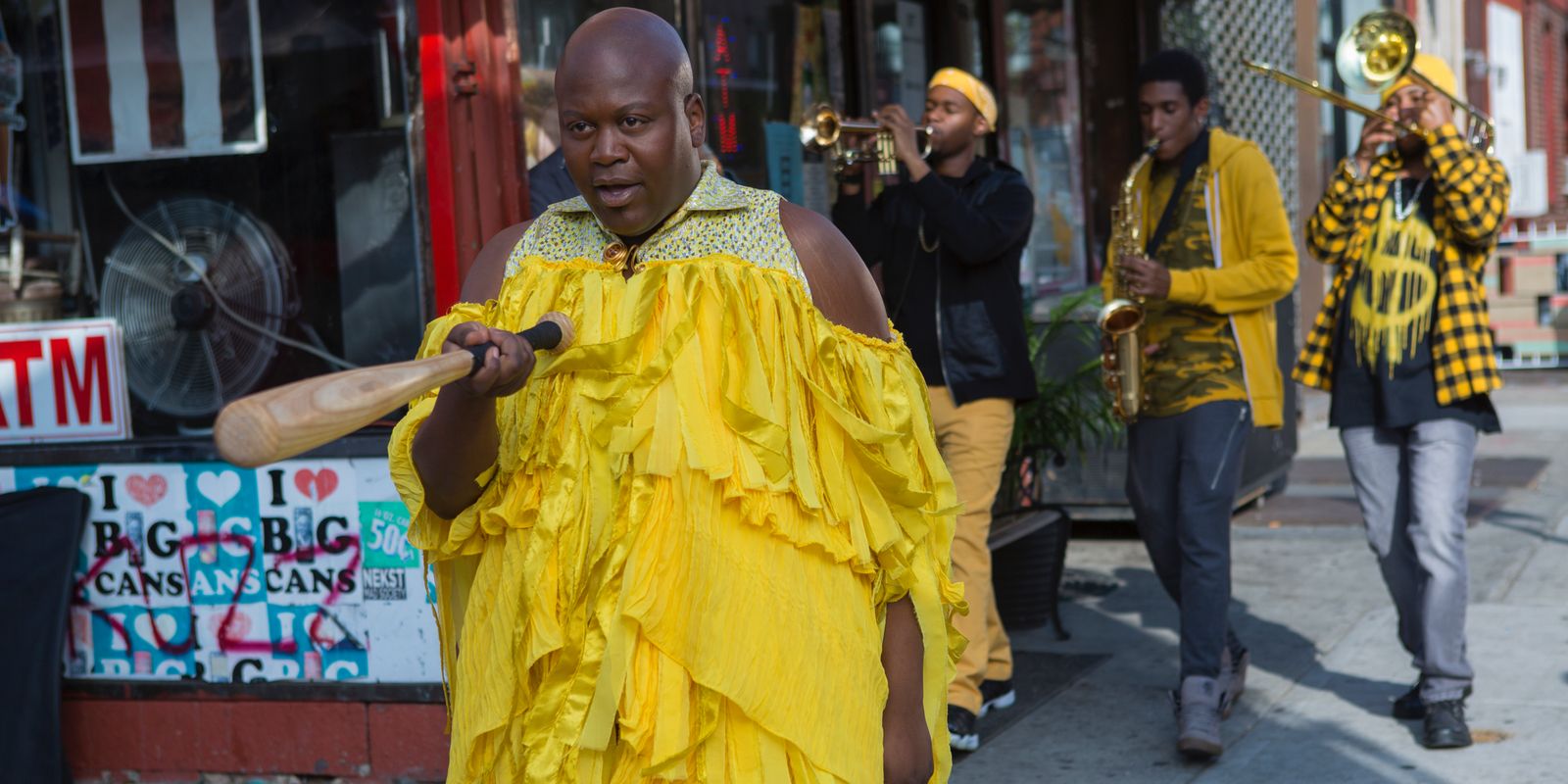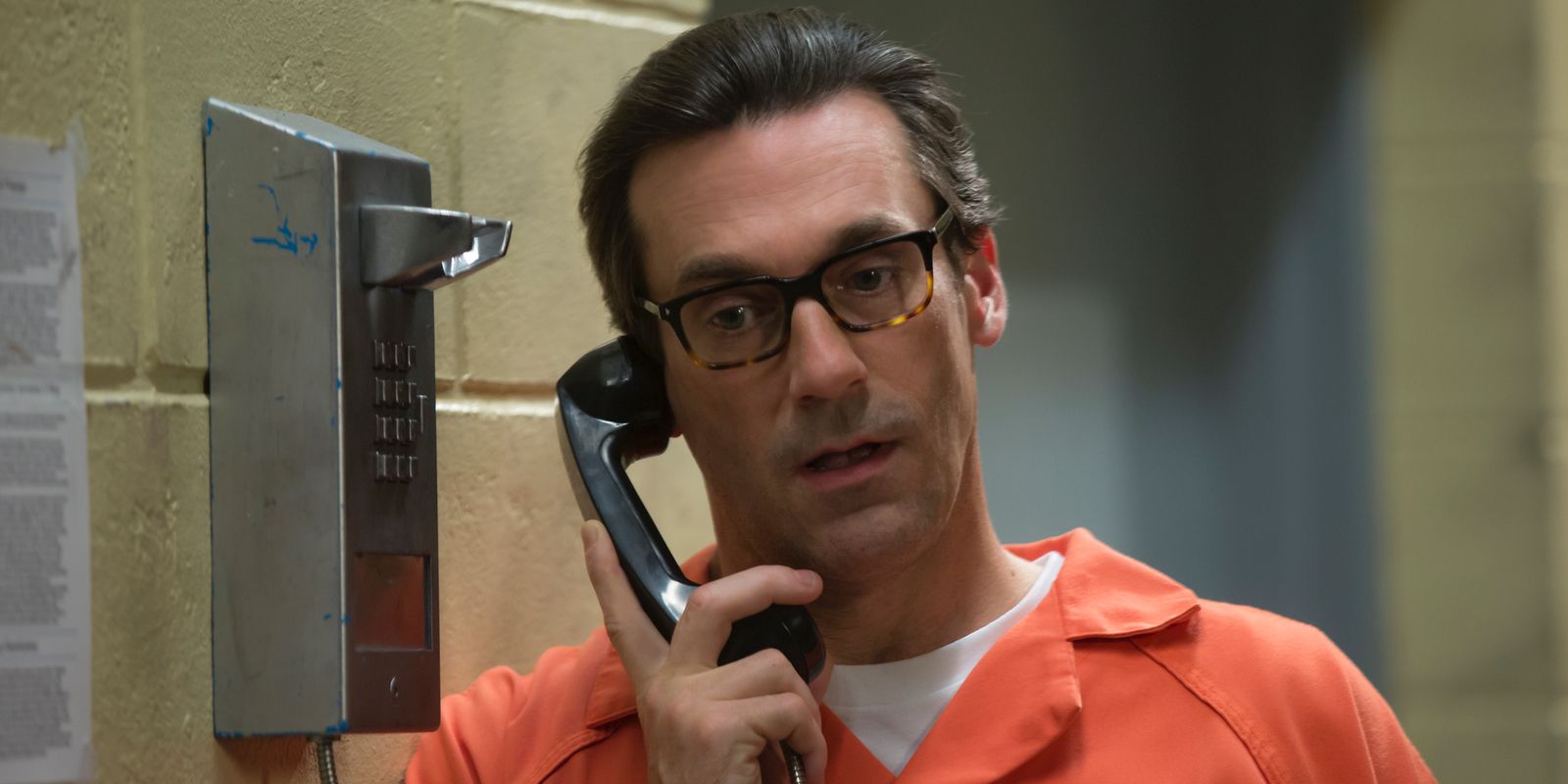The idea of forward progression isn't normally something you see on a sitcom. Sure, characters learn something from time to time, but they never really grow as a result of certain understandings; those experiences don't fundamentally change their worldview and how they function within the show's particular setting. That's essentially true of Netflix's Unbreakable Kimmy Schmidt as well: the characters have to stay fundamentally the same, but as the series enters into season 3, the funny, sometimes-surreal comedy from Tina Fey and Robert Carlock demonstrates a willingness to break out of the typical sitcom mold and to explore avenues that present a new path for its characters.
The latter half of season 2 offered the most concrete evidence of this, as Ellie Kemper's Kimmy started dealing with some of the emotional fallout of having been held in an underground bunker for the past 15 years with Jon Hamm's Reverend Richard Wayne Gary Wayne and a few other women taken for the same purpose in a doomsday cult. That's some surprisingly dark material to balance with the usual yuks that come along with one of the funniest comedies on TV (streaming and otherwise) in recent years, and as it has progressed, Unbreakable Kimmy Schmidt has managed to find smart ways to sharpen its humor and explore the consequence of its title characterhaving lost so much of her life to the lies and the manipulations of a madman.
That side of Kimmy's story line contrasts interestingly with the silliness of the plots and the increasing absurd antics carried out by Kimmy and supporting characters Titus Andromedon (Tituss Burgess), Jacqueline White (Jane Krakowski), and Lillian Kaushtupper (Carol Kane). So when the second season ended with a surprise phone call from the incarcerated Reverend Richard Wayne Gary Wayne, suggesting that Kimmy wasn't as done with that part of her life as she thought, it presented a unique challenge for season 3. One that the series demonstrates it is more than able to handle as the first few episodes put Kimmy's stunted emotional maturation on the road to college and all the complicated experiences that are destined to unfold there.
In the first few episodes, it's clear the season wants to be about testing new waters and characters stepping outside their comfort zones. And for the most part, the series is eager to follow suit. The first two seasons were peppered with flashbacks to Kimmy's time in the bunker. Those asides were not only funny, they helped establish the framework of Kimmy's story and provided context for all of her outdated jokes and references, while also explaining her stunted emotional growth. But to a large degree, season 2 closed a big chapter when Kimmy was reunited with her roller coaster-loving mother (Lisa Kudrow), allowing them both the sitcom-variety catharsis that would give the title character a chance to move forward with her delayed start on life.
As weird as it sounds, Unbreakable Kimmy Schmidt season 3 is the coming-of-age season for pretty much all the characters on the show. Everyone from Kimmy to Jacqueline to Titus are all floundering toward some kind of maturation and adulthood – which is saying something since they're all, you know, adults. Sure, Titus does an amazing sendup of Beyoncé's Lemonade and thinks jarred spaghetti sauce is a relaxing beverage, and Lillian is emotionally disturbed when Bobby Durst (Fred Armisen) takes their breakup with a disturbing (some might say psychotic) level of nonchalance, but for the most part each character is determined to put one foot in front of the other and to walk into maturity with their head held high, regardless of how they embarrass themselves. That means getting clear of the things that were holding them back. Kimmy turns the tables on Wayne Gary Wayne, while Titus breaks up with his boyfriend, Mike – for Mike's own good. Meanwhile, Jacqueline realizes she's actually in love with her new husband Russ Snyder (David Cross), even going so far as to reject the sexual advances of her brother-in-law despite his being played by Josh Charles.
In mirroring the (potential) growth of its characters, Unbreakable Kimmy Schmidt, too, moves on. In the first half of the season, the series demonstrates a noticeable dearth of flashbacks to Kimmy's time in the Reverend's bunker. There are only a few throwaway jokes referencing her 15 years there, and one of them is the key to her inexplicably getting a full-ride to Columbia on an equally inexplicable rowing scholarship. But that, if anything, is just another solid demonstration of how weird and funny the series is, and how willing it is to recognize its own absurdity just as it's doubling down on a particularly outlandish joke.
Unbreakable Kimmy Schmidt is like early seasons of The Simpsons in that way: the show's writers never hesitate to acknowledge just how aware they are that they're essentially building a joke machine, while also telling a story that is more than a delivery system for punch lines. As such, the jokes fly faster than ever before, meaning you'll probably want to have your thumb on the rewind button to make sure you catch them all. Some of the gags are astonishingly well built, stacking one joke on top of another and throwing in the odd pop culture or political reference here and there. The characters may be growing and maturing in their own way – discovering feminism and tackling such issues as gentrification and corporatization as only the wonderfully ridiculous characters on this show could – but the series is still interested in making viewers laugh above all else.
Next: Master of None Season 2 Brings Even More Low-Key Charm & Watchability
Unbreakable Kimmy Schmidt seasons 1-3 are available in their entirety on Netflix.



